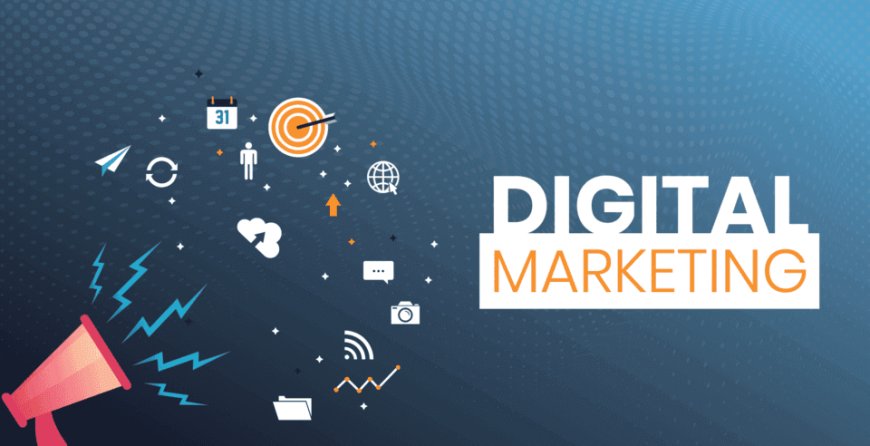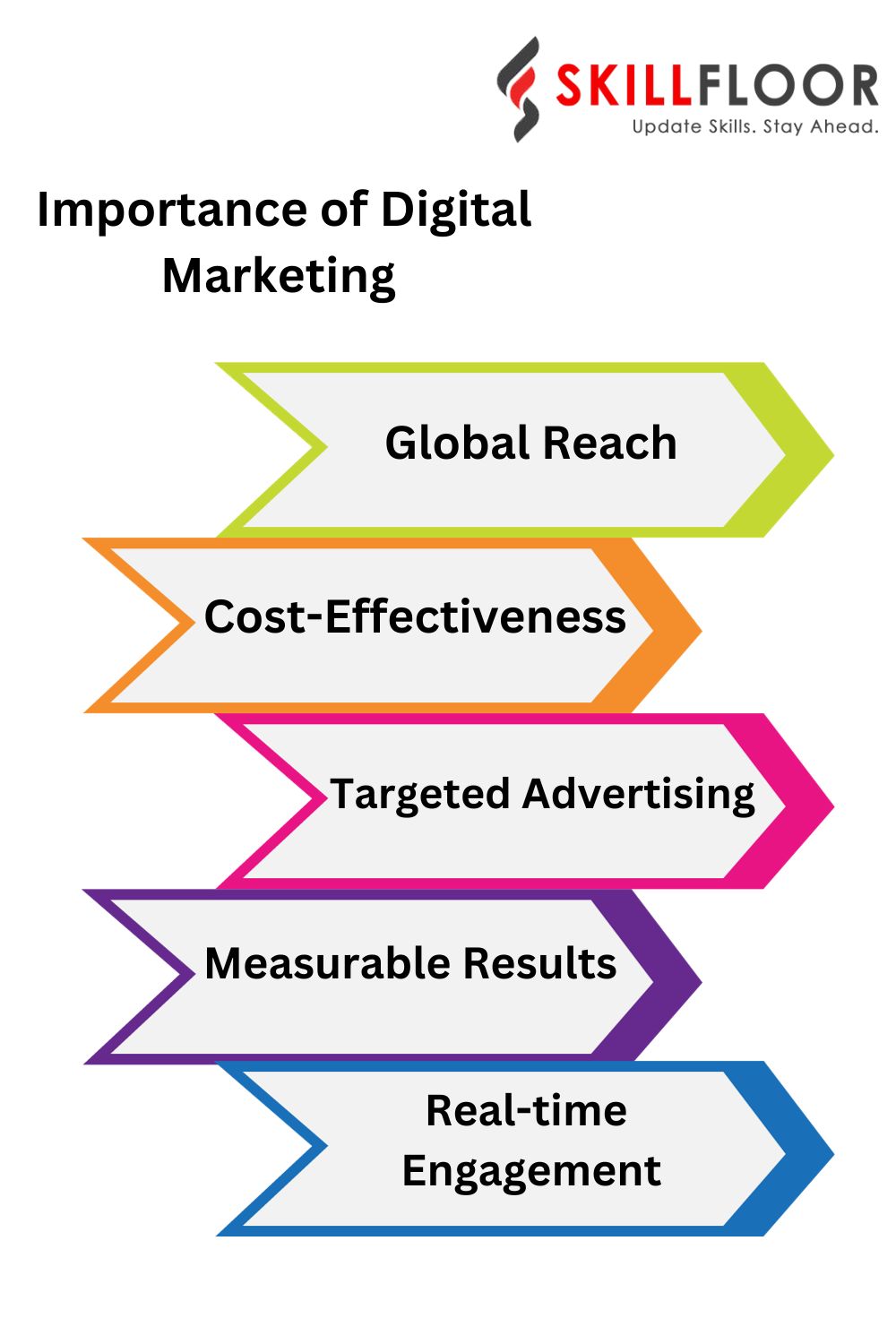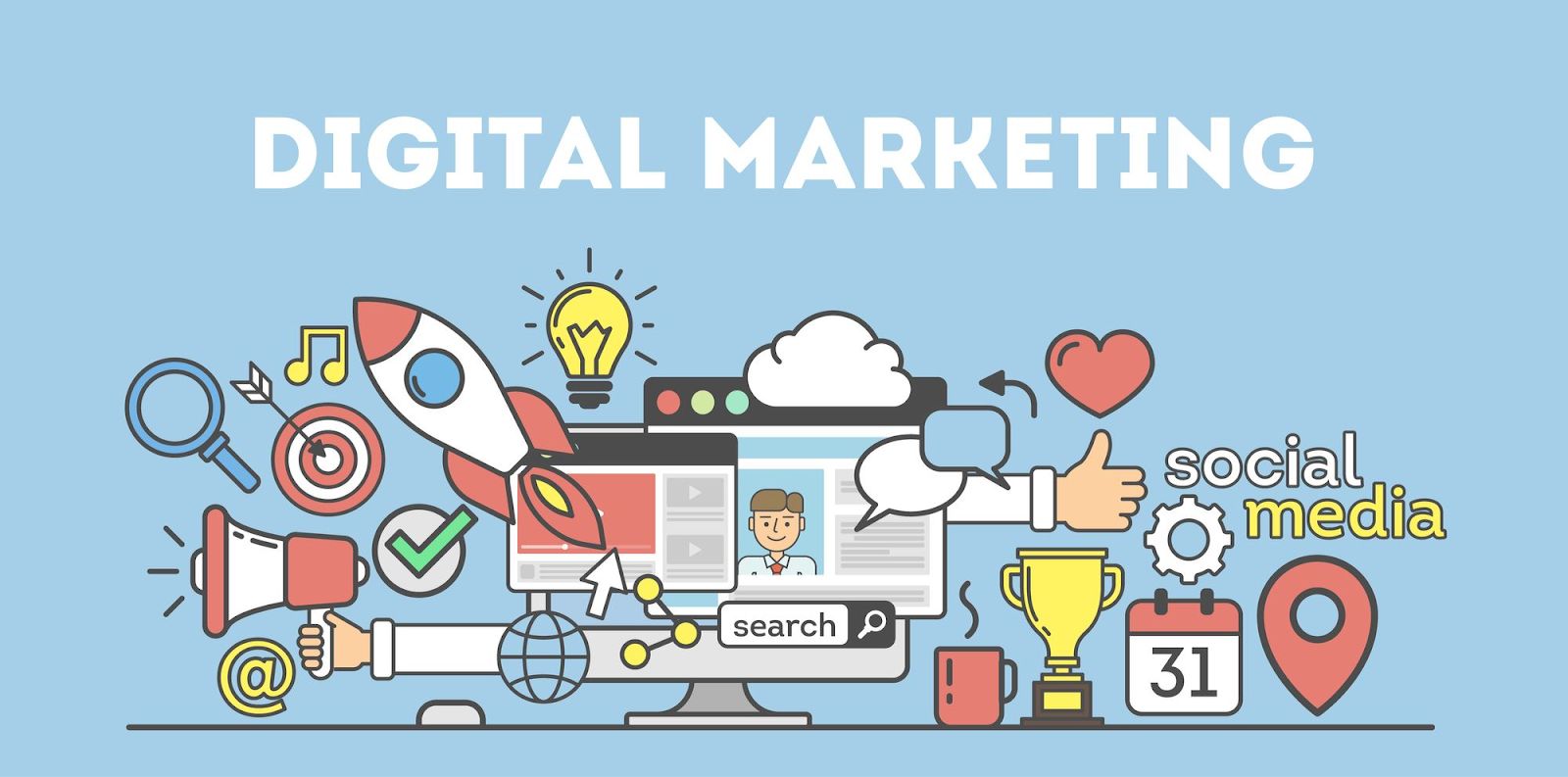Importance of Digital Marketing
Explore the pivotal role digital marketing plays in achieving business success. From enhancing online visibility to engaging target audiences, discover how strategic digital efforts can propel your business forward in today's competitive landscape.

For companies of all sizes, efficient marketing is essential in the variable digital market. As businesses aim for success, their reliance on digital marketing has increased dramatically. This change is a reflection of the need to adjust to the shifting market conditions when conventional approaches might not be sufficient. Businesses can maintain relevance and significant audience connections by adopting digital tactics, which promotes long-term success.
Adapting to Technology Breakthroughs
Current advertising techniques satisfy the demands of a tech-savvy consumer base in the current digital. A reevaluating strategy is necessary due to the shifting economic climate. A significant role is shown for digital marketing, which provides channels for reaching a larger audience. Its function becomes crucial in negotiating the intricacies of a market molded by evolving consumer habits and technology breakthroughs.
Challenges of Standing Out in a Crowded Market
With the rise of the internet, consumers now have unprecedented access to information. This accessibility has made the market more competitive, making it challenging for businesses to stand out. Traditional marketing channels alone are no longer adequate to capture the attention of the target audience.
How can businesses leverage digital marketing to not only survive but thrive?
Digital marketing offers a myriad of opportunities for businesses to connect with their audience in a meaningful way. Let's delve into the key aspects that highlight its importance.

1. Global Reach
Digital marketing dismantles geographical constraints, enabling businesses to connect with a worldwide audience. Leveraging well-thought-out online campaigns empowers companies to broaden their market reach well beyond their local confines. It's a tool that transcends physical boundaries, providing a platform for businesses to extend their presence and engage with potential customers globally.
2. Cost-Effectiveness
Digital marketing proves cost-effective compared to traditional methods. Platforms like social media, email campaigns, and content marketing offer powerful tools for businesses on tight budgets. Unlike traditional approaches, digital strategies allow precise targeting, minimizing costs while maximizing reach. This affordability makes it an attractive option, particularly for smaller businesses aiming to make a significant impact without breaking the bank.
3. Targeted Advertising
Digital marketing's strength lies in precise demographic targeting. Thanks to data analytics and user behavior tracking, businesses can customize messages to connect with their desired audience effectively. This tailored approach enhances the impact of marketing efforts, ensuring messages resonate with the right customers. It's a strategic use of data that allows businesses to speak directly to those who matter most, a key advantage in the dynamic landscape of digital marketing.
4. Real-time Engagement
Digital marketing enables real-time interaction with the audience. Social media platforms facilitate instant communication, allowing businesses to address customer queries, concerns, and feedback promptly. This responsiveness builds trust and strengthens the customer-business relationship.
5. Measurable Results
Unlike traditional marketing, digital marketing offers comprehensive analytics tools. Businesses can track the performance of their campaigns, measure engagement, and assess the return on investment (ROI). This data-driven approach allows for continuous optimization of marketing strategies.
What makes Digital Marketing inevitable for businesses?
In contemporary business, digital marketing has become a cornerstone for success. Its inevitability stems from the fundamental shifts in consumer behavior and the marketplace. With the majority of consumers relying on online platforms for information and purchasing decisions, businesses can't afford to ignore the digital realm. The ability to reach a global audience, coupled with cost-effective strategies, makes digital marketing an essential tool for businesses of all sizes. Targeted advertising, facilitated by data analytics, allows companies to connect with their ideal customers, fostering meaningful engagements. The real-time nature of digital marketing enables prompt interaction, addressing customer concerns, and building trust. Additionally, the ability to measure results provides businesses with invaluable insights for continuous improvement. In essence, the integration of digital marketing has become not just advantageous but necessary for businesses and the competition of today.
How does Digital Marketing serve a customer?
Digital marketing plays a crucial role in serving customers by providing value, convenience, and personalized experiences.

1. Information Accessibility
Digital marketing ensures that customers have easy access to information about products and services. Through websites, social media, and online content, customers can gather relevant details at their convenience, helping them make informed decisions.
2. Personalized Communication
Digital marketing allows businesses to tailor their communication to individual customer preferences. Email marketing, for example, can deliver personalized messages based on previous interactions, creating a more relevant and engaging experience.
3. Convenience and Accessibility
Through online platforms, customers can engage with businesses at any time and from any location. E-commerce websites, social media pages, and mobile apps provide a convenient way for customers to explore, purchase, and interact with brands on their terms.
4. Customer Support and Interaction
Digital marketing facilitates real-time interaction between customers and businesses. Social media platforms and live chat features on websites allow customers to seek assistance, ask questions, or provide feedback promptly. This responsiveness builds trust and enhances the overall customer experience.
5. Targeted Offers and Discounts
Businesses use digital marketing to analyze customer behavior and preferences. This information enables them to offer targeted promotions, discounts, and personalized recommendations, enhancing the perceived value for customers and increasing their satisfaction.
6. Community Building
Social media platforms provide a space for businesses to build communities around their brand. Customers can connect with like-minded individuals, share experiences, and feel a sense of belonging, fostering a positive relationship with the brand.
Why Choose Digital Marketing Takeaways
-
Global Reach: Expand market presence beyond physical boundaries.
-
Cost-Effectiveness: Affordable compared to traditional methods.
-
Targeted Advertising: Tailor messages for specific demographics.
-
Real-time Engagement: Instant interaction with the audience.
-
Measurable Results: Comprehensive analytics for performance tracking.
-
Data-Driven Optimization: Continuous improvement of strategies.
-
Competitive Edge: Stand out in the crowded digital landscape.
-
Enhanced Customer Trust: Promptly address queries and feedback.
-
Adaptability: Easily adapt to changing market trends.
-
ROI Focus: Assess and optimize campaigns for maximum returns.
Digital marketing is indisputable due to its capacity to overcome geographical constraints, give affordable solutions, provide customized advertising, offer real-time involvement, and yield quantifiable outcomes. Digital marketing becomes advantageous and essential for success as firms adjust to technological advancements and the demands of a crowded market. It benefits users by offering easy access to information, tailored communications, easy, strong customer service, offers that are specifically tailored to them, and community development.






























































